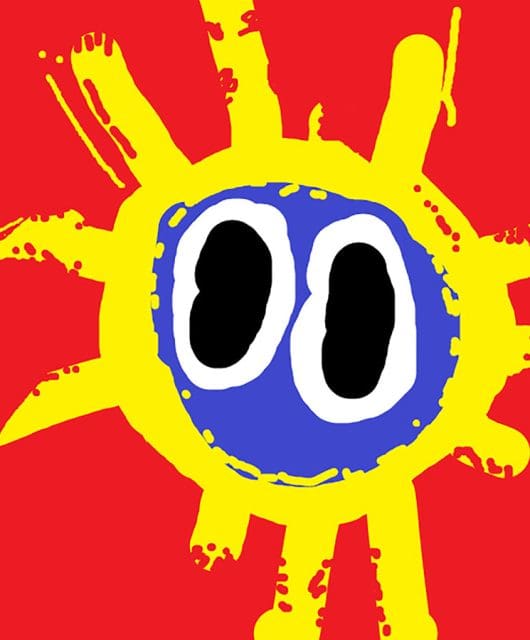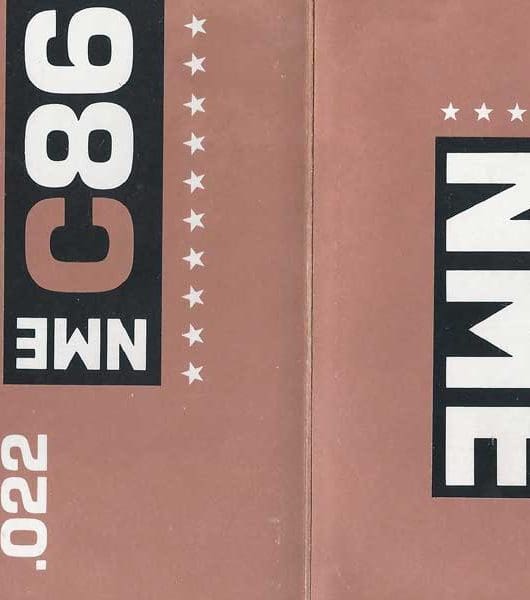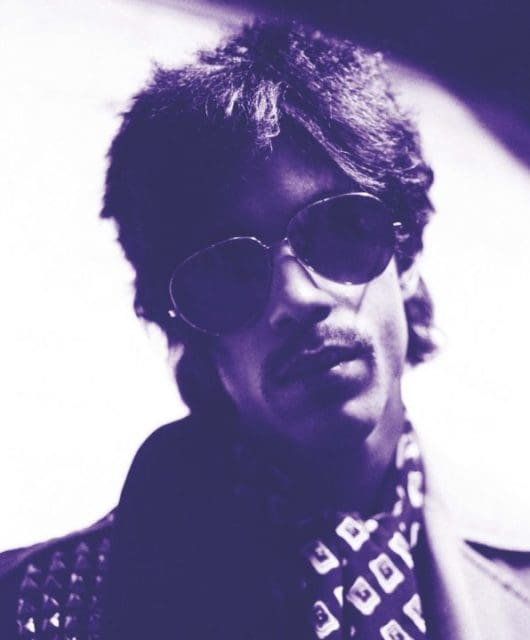Album By Album – New Order
By Steve Harnell | May 27, 2021
New Order albums – From 1981’s Movement to 2015’s Music Complete, this is your definitive guide…

New Order Albums: Movement
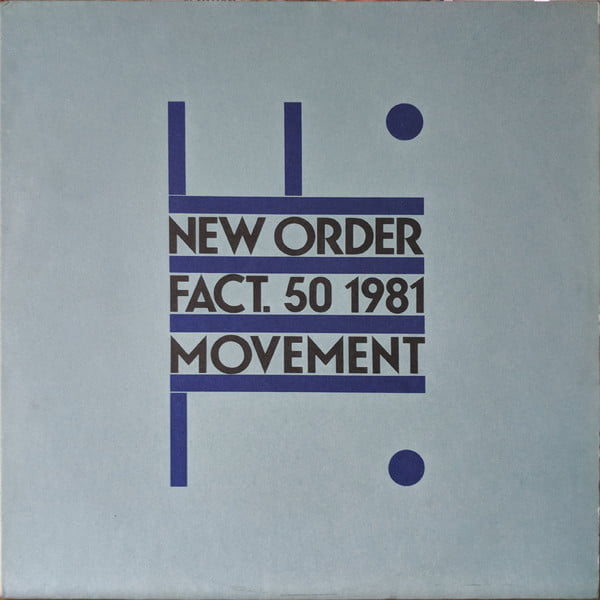
Released 1981
Label Factory
Chart Position UK No.30 US –
Tentative, but oddly determined, Movement sits at the epicentre of a Joy Division/New Order Venn Diagram where the past is still close at hand and a clear path ahead seems tantalisingly out of reach.
The ghost of Ian Curtis hovers ominously over the contents of New Order’s debut album, both in the vocal mannerisms of Bernard Sumner and Peter Hook, who contribute lead vocals, and the distinctly Joy Division-sounding arrangements and ambience. Realistically, how could it be anything else?
Crushed by the suicide of Curtis in May 1980, the day before a planned US tour, the remaining members of Joy Division were unsure if they could continue in any form.
Encouraged by band manager Rob Gretton and Factory label boss Tony Wilson, Hook wrote Movement’s opener Dreams Never End within hours of Curtis’ wake. Just two months after Curtis’ death, Sumner, Hook and drummer Stephen Morris had enough new material to tentatively play a nerve-wracking live show at the Beach Club in Manchester, each alternating on lead vocals.
There’s a sense of forward momentum with the move but, at the same time, a lack of focus where the nascent New Order (they dubbed themselves The No Names at The Beach Club where they were last-minute replacements for Factory Benelux act The Names) are still unclear as to where their strengths lie.
By October 1980, the classic-era New Order quartet was complete with Morris’ girlfriend Gillian Gilbert joining on keyboards to allow Sumner to concentrate on his lead vocals and guitar.
But the man who defined and elevated Joy Division – mercurial producer Martin Hannett – was the very same individual who held New Order back. This new band lacked confidence, and they were crushed by withering criticism from Hannett who once flippantly described Joy Division as “one genius and three Manchester United supporters” (his praise, of course, was aimed at Curtis).
Sessions for Movement were painful – Hannett was by now deep into heavy drug addiction and locked himself in a tape store cupboard with a tiny speaker for long stretches of the sessions, only emerging if he found anything to
his taste. In the end, Movement is as much an historic document of a band in flux as it is a standalone release. Opener Dreams Never End, sung by Hook, is the standout, with a propulsive melodic bassline, ominous vocal and Morris’ hyperactive hi-hat riding groove. Meanwhile, there’s a dark allure to the ticking drum machine and ghostly melodica of Truth and Gilbert’s synth contributions shape Chosen Time, the latter simultaneously pointing towards the synth-rock hybrid that would eventually become their calling card.
New Order Albums: Power, Corruption & Lies
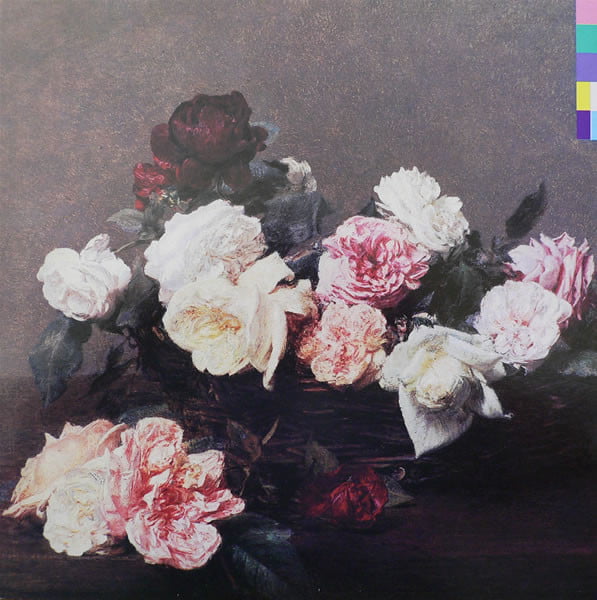
Released 1983
Label Factory
Chart Position UK No.4 US –
Two game-changing songs feed into the genesis of Power, Corruption & Lies, and like many of New Order’s early singles, they were both resolutely left off its attendant album.
Released in May 1982, Temptation was a joyous freeing of the shackles; a realisation by the band that they could step out from underneath the shadow of Ian Curtis and forge a new future for themselves. Synth textures weren’t just a background element in the mix, they were a lead instrument.
Temptation is New Order’s eureka moment, an interlocking sound that the band have refined over the next four decades; Morris’ propulsive rhythms, Hooky’s melodic bass, Barney’s slashing guitars (and simplistic lyrics) allied to Gilbert’s instantly memorable synth lines.
Equally important in the eventual success of Power, Corruption & Lies is preceding standalone single Blue Monday, a landmark club classic and still the biggest-selling 12″ of all time. What more can be said of this most iconic of songs, except to say that it established New Order as one of the most important bands in the world.
Dispensing with the services of Hannett, New Order’s second studio album was self-produced. The sense of freedom is palpable from the clattering opener Age Of Consent, the joyous synth-pop bounce of The Village (“Oh, our love is like the flowers/ The rain, the sea and the hours”) and the proto-Blue Monday excursion of seven-minute epic 586 where Sumner, who by now has asserted himself as lead singer and lyricist, throws down allusive cut-up words over an elastic beat and electronica pulses.
The band’s combined love of Kraftwerk is referenced in the graceful melody of Your Silent Face, a quite beautiful track buoyed by Sumner’s melodica solo and a tongue-in-cheek lyrical pay-off that displays New Order’s sometimes-overlooked sense of humour: “You’ve caught me at a bad time/ So why don’t you piss off.”
Only the merest hint of Joy Division and Ian Curtis can be detected on the dark atmospherics of We All Stand. Elsewhere, this was the Brave New World of a band striding heroically into the future.
New Order Albums: Low-life
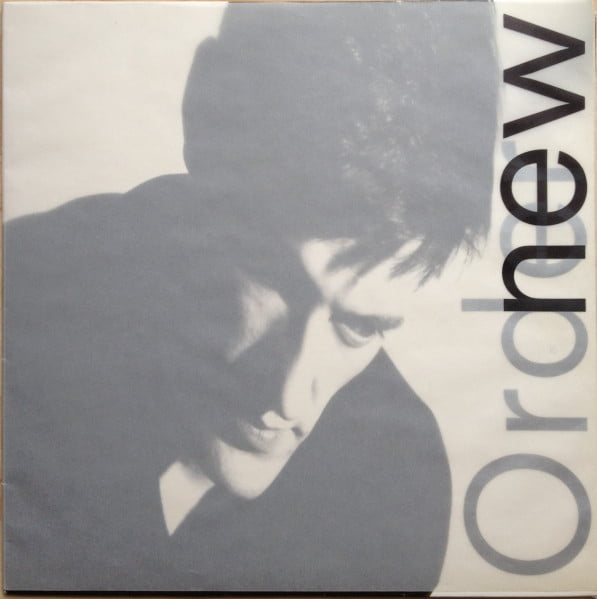
Released 1985
Label Factory
Chart Position UK No.7 US No.94
By now fully embracing dance music culture as much as their post-punk roots, collaborations with hit US producer Arthur Baker on non-album singles Confusion and Thieves Like Us found New Order squarely placed in crossover territory.
But Low-Life marks another turning point, too. For the first time two keynote tracks on the album, The Perfect Kiss and Sub-culture, would be released as singles; a rare case of New Order willing to compromise and play the music industry game. Gasp, there’s a band member shot on the cover and throughout the inner sleeve.
Sumner’s inimitable way with lyric writing – often improvised and rarely adhering to any narrative arc – pinballs between playful and downright odd on Low-Life. The inspiration behind The Cure’s In Between Days, opener Love Vigilantes, in what can only be described as synth’n’western, was that rarest of New Order beasts; a story song – and a strange one at that.
Ostensibly it’s the tale of a soldier returning from war to find his collapsed (possibly dead) wife on the floor of their family home after receiving a telegram wrongly declaring her husband had been killed in action.
Low-Life was coherent and consistent; full of melody, optimism and even sex –on the uproarious Face Up, Barney gets lyrically amorous (non-grammatically, naturally): “Your hair was long, your eyes was blue/ Guess what I’m gonna do to you,” while on The Perfect Kiss Sumner even drops in an ode to onanism: “Tonight I should have stayed at home/ Playing with my pleasure zone.”
On Sub-culture there’s the blatant “One of these days when you sit by yourself, you’ll realise you can’t shaft without someone else.”
Hook adds drama to the graceful This Time Of Night with Barney’s full-on ‘Method’ performance serving up his most impassioned vocal to date.
The urgent rocker Sunrise is full of piss and vinegar, a superb clattering ensemble piece and perfect counterpoint to the beatific and almost Tubular Bells-like instrumental Elegia.
New Order Albums: Brotherhood
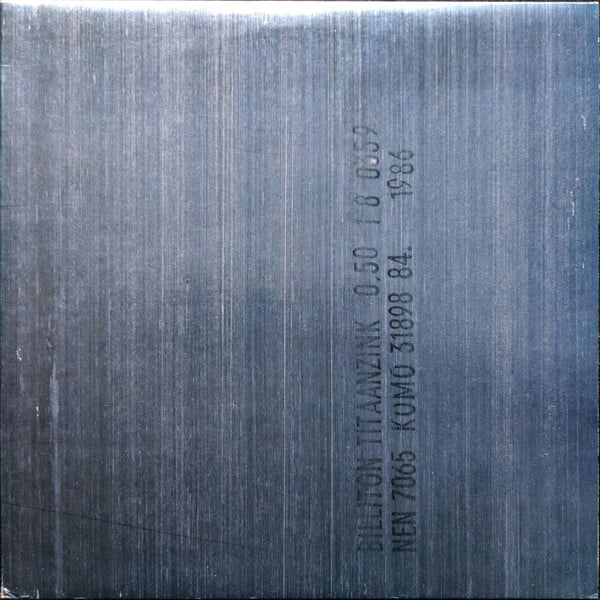
Released 1986
Label Factory
Chart Position UK No.9 US No.117
Despite an increasing number of battles in the studio where Brotherhood was pretty much written from scratch, there’s a carefree breeziness about New Order’s fourth album which has left it unfairly maligned among their pomp-years efforts.
Split into an opening rock side with electronic-centric tracks on the remainder, the band take a maximalist approach in terms of the overdubs. Barney displays his most devil-may-care attitude to lyric writing here; the sound of the words is as important as their meaning.
Weirdo teeters on banality among its lyrical generalisms but who could argue with such a magisterial interlocked groove as that? Sumner also throws down his best Nile Rodgers impression on Paradise and New Order expand their sonic palette by adding acoustic guitars into the mix for As It Is When It Was.
A knowing wink in Broken Promise’s intro alludes to Joy Division’s Isolation but this was a band now having fun with their past, not manacled by it. Nestling on side two is keynote track Bizarre Love Triangle which boasts one of the all-time great middle-eights and a swirling synth solo from Gilbert.
The plaintive All Day Long drops us down the gears but for many fans, the takeaway from Brotherhood is closer Every Little Counts. Inspired by Lou Reed’s Walk On The Wild Side with a swirling synth crescendo and glitchy ending mimicking a record being scratched (their own 80s updated nod to the A Day In The Life’s epic cacophony), Bernard gets a fit of the giggles at the outset singing: “Every second counts, when I am with you/ I think you are a pig, you should be in a zoo.”
They left that in the final mix. The weight of a generation on their shoulders? Not a bit of it…
New Order Albums: Technique
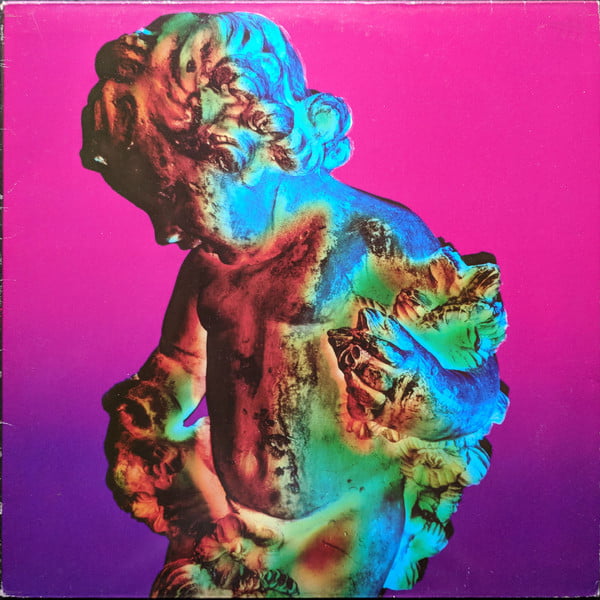
Released 1989
Label Factory
Chart Position UK No.1 US No.32
Tony Wilson called it “the most expensive holiday New Order ever had”, but the least that we can say about the band’s four-month sojourn in Ibiza that resulted in one finished song, rough versions of two others and a bunch of drum tracks (Stephen Morris hated the sun) is that it got them into the right headspace to create what is arguably their masterpiece of cross-pollination.
Fully expecting to immerse themselves in the acid house tunes they’d become familiar with at the Haçienda, when New Order arrived in Ibiza to begin recording Technique in April 1988, the clubs were instead full of commercial-sounding Balearic beat.
That glossy, euphoric style began to grow on Eurodisco fan Sumner in particular, although it instigated more divisions in the band – Hook wanted Technique to go in a clear-cut rock direction. The bassist lost the battle.
However, the hedonistic Ibizan trip is only part of the eventual story, as they finished off the bulk of the album during a seven-week stay at Peter Gabriel’s Real World Studios.
Sumner was undergoing a divorce at the same time as penning Technique’s lyrics; a melancholic air infuses many of the tracks, including the downbeat musing on a fractured relationship, Love Less, and the bruised Guilty Partner, which conceals its pain within a killer chorus and an upbeat Spanish-style guitar solo.
To call this an introspective record, though, would be almost entirely missing the point. Take note of the terrific opener Fine Time with its hilarious Barry White parody vocal: “You know I’ve met a lot of cool chicks, but I’ve never met a girl with all her own teeth.”
The frenetic beats of Round & Round are New Order at their most club-centric while the holiday romance tale of Mr Disco pre-dates the melodicism of Electronic’s debut album as does the brushed acoustic stylings of the chiming Dream Attack.
Taking a leaf out of Blue Monday’s book is another track aimed at the dancefloor – the ambitious Vanishing Point cycles through its whole arrangement before Sumner’s vocals finally kick in.
Technique was New Order’s first UK No.1 LP and the most finessed of their dance-rock hybrids. Their future looked rosy, but troubled times were just around the corner…
Read our feature on the making of Technique
New Order Albums: Republic
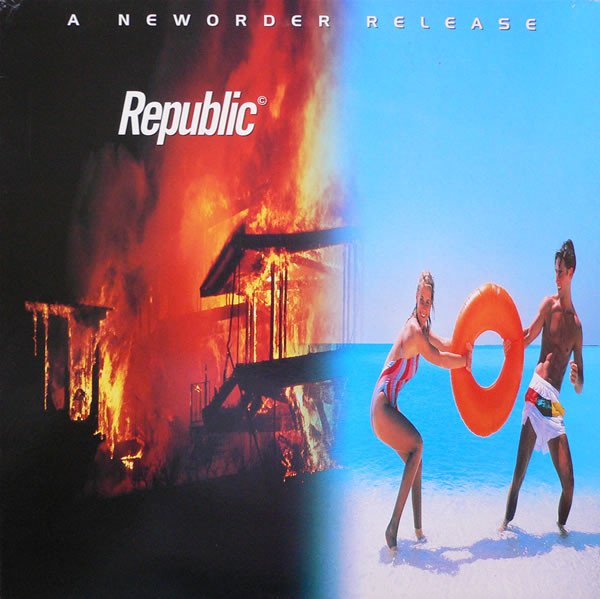
Released 1993
Label London
Chart Position UK No.1 US No.11
As the Haçienda haemorrhaged money and the Happy Mondays wreaked havoc during sessions for their Yes Please! album, Factory Records crashed and burned. New Order were intrinsically linked with Factory, of course, both creatively and financially.
When the label went bankrupt they were forced to move to London Records and the fate of their former mothership informs the heavy heart of Republic – lyrical allusions to decay, fractured relationships and betrayal abound. The carefree hedonism of Technique’s Ibizan reconnaissance mission was a thing of the past.
Sessions for the album proved gruelling; Morris described it as “a very, very unpleasant record to make.” The band employed a producer for the first time for a full album since Martin Hannett, and Stephen Hague brings coherence here to an unravelling band.
In his autobiography Substance: Inside New Order, Hook claimed opening track Regret was the final true collaboration between all four original members before Sumner began to dictate proceedings – it’s nothing short of a masterpiece. There’s a buoyancy to the synth-pop of World and a thrilling throb to the dense, hard-hitting Spooky.
Downbeat ballad Ruined In A Day mourned the demise of Factory obliquely while the choppy guitars of Everyone Everywhere recall Sumner’s collaboration with Johnny Marr on Electronic’s superlative eponymous debut album. The clubby keyboards of Young Offender are similarly well aimed at the dancefloor.
Liar is a nasty kiss-off perhaps aimed at Tony Wilson and Rob Gretton, while the thumping Chemical similarly snaps back at New Order’s financial woes: “And this is how it feels to be/ On the payroll company/ Your every scene is in the round/ And all the men are falling down.”
Sumner’s rapping skills misfire on the dirgy Times Change but there’s a closing note of hope with near-instrumental Avalanche. Gilbert’s breathy, repetition of the word ‘faith’ feels, for once, almost triumphant and yearning. All they had to hold on to was themselves…
Get Ready
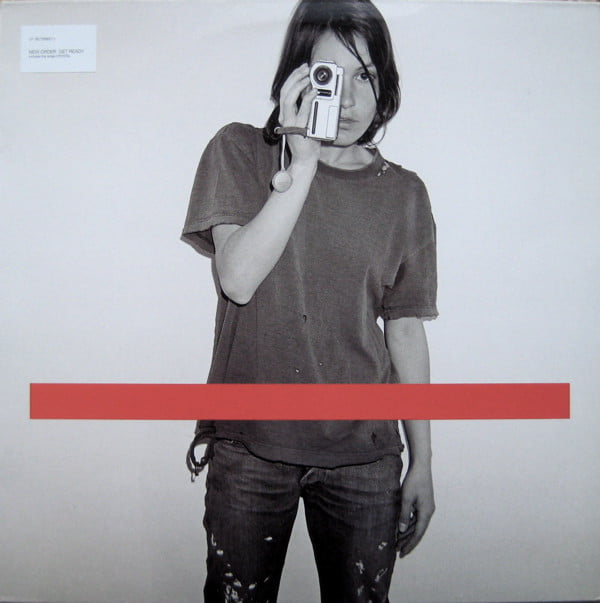
Released 2001
Label London
Chart Position UK No.6 US No.41
Despite first reconvening at the behest of manager Rob Gretton in 1998 – thus giving Britpop a swerve since the dying embers of Republic – it would be another three years before a new studio album arrived.
And like Republic, New Order announced their return with an impeccable comeback single. Crystal ticks all the boxes any self-respecting fan could ask for, including a battle royale between Sumner’s slashing guitar and Hooky’s high-in-the-mix lead bass part.
As a further reminder of the good old days, there’s even a ridiculous Barney couplet: “Here comes love/ It’s like honey; You can’t buy it with money”.
Star guests on board underline that New Order’s return is a cause for celebration. Fanboy Billy Corgan duets with Sumner on Turn My Way, a simple anthem of freedom, while Primal Scream’s Andrew Innes and Bobby Gillespie bring the swagger to the throwaway sleaze of Rock The Shack.
60 Miles An Hour may be New Order by numbers, but when a trademark Hooky bass solo crunches through the mix, few would argue that it fails to pack an emotional punch.
Elsewhere, there’s the hushed electro of Vicious Streak, powerhouse rhythms of Primitive Notion and atypical closer Run Wild, a lump-in-the-throat moment of swelling strings, delicate acoustics and Barney opining “If Jesus comes to take your hand, I won’t let go.”
Read more: The Lowdown – New Order
New Order Albums: Waiting For The Sirens’ Call
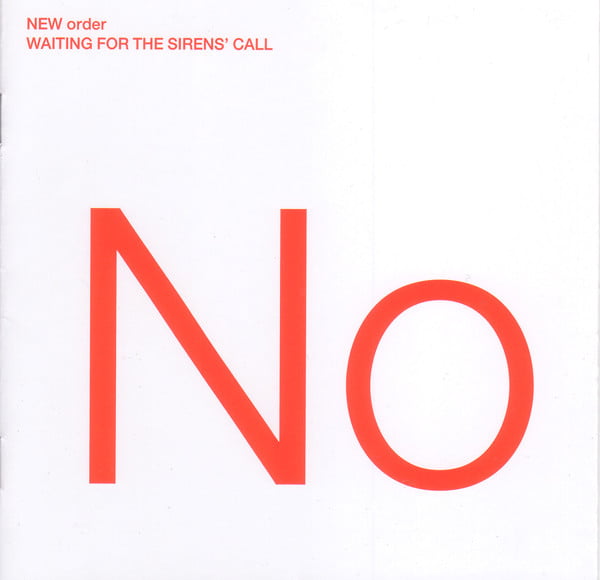
Released 2005
Label London
Chart Position UK No.5 US No.46
Much-lauded with Godlike Genius NME Awards and BRIT Awards plaudits still ringing in their ears, Waiting For The Sirens’ Call frequently sounds like a band coasting on former glories.
With Phil Cunningham now replacing the departed Gillian Gilbert who left to take care of her seriously ill daughter, the contributions of the outgoing keyboardist were much missed.
The album occasionally catches fire but too many songs outstay their welcome, the majority push past a rather bloated five-minute mark.
Hey Now What You Doing picks up the baton from the second Electronic album, with a distinctly Johnny Marr-sounding guitar threaded through the mix. As 80s- and early-90s tastemakers New Order led rather than followed, but here they sound a little out of touch.
The title track features a wonderful lead bass melody from Hook and few could deny the propulsive groove of single Krafty, particularly when Morris’ drums come crashing in at the chorus.
Yet it’s the odd left turn which lifts proceedings; the reggae bounce to the electro pulses of I Told You So and The La’s-on-steroids swagger of Working Overtime.
At least Barney sounds engaged on the urgent guitar rocker Morning Day And Night but he’s far from convincing on Jetstream, a high-profile collaboration with flavour-of-that-moment Ana Matronic which ironically enough fails to take off.
Despite a Who’s Who of top-ranking producers on board – John Leckie (The Verve, The Stone Roses), Stephen Street (The Smiths, Blur) and Stuart Price (Madonna, Kylie, Take That) – they’re not able to push New Order to anything like their best work.
The album doesn’t suffer from taking a multi-producer approach, it’s just that the band sound uninspired trading on former glories rather than creating new ones for themselves.
No longer hitting the clubs with a vengeance, or hitting them at all for that matter, New Order could never claim here to have their finger on the dance music pulse.
Plenty of nostalgia for old fans, but this is a band who never previously had to rely on that to turn heads.
New Order Albums: Lost Sirens
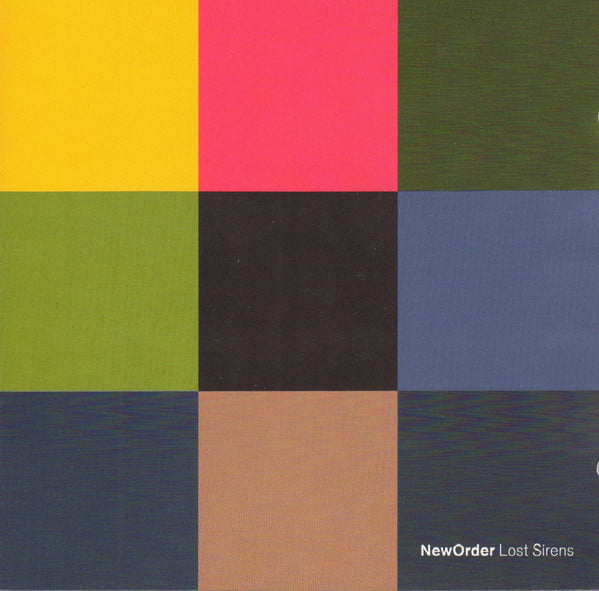
Released 2013
Label Rhino
Chart Position UK No.23 US No.174
When New Order racked up £700,000 in studio costs while recording Waiting For The Sirens’ Call, it’s perhaps no surprise that all of the material laid down during those fraught sessions would eventually see the light of day in some form.
What is eye-opening, though, is the consistency of Lost Sirens, an eight-song collection of leftover tracks that failed to make the original cut which was eventually released in 2013 following Peter Hook’s acrimonious departure from the band.
The original album wasn’t without its fair share of filler, but there’s plenty to enjoy here and arguably evidence of missed opportunities. Surely there was space on that first LP for the fizzy guitar pop of Sugarcane with Sumner once more aping the scratchy, funky guitar of Chic’s Nile Rodgers.
The piano-led and acoustic textures of Recoil would certainly have provided a nice change of pace, too. Californian Grass benefits from a pleasingly grungy mid-section and Hellbent features a neat Stonesy keyboard riff. There’s the crackling guitar/electronica soundclash of Shake It Up and further flashes of inspiration in the stop-start I’ve Got A Feeling.
A rebooted version of I Told You So from the original album is found here in its Crazy World Mix and makes good on that song’s first intention of morphing into a Velvet Underground homage Venus In Furs-style drone.
New Order Albums: Music Complete

Released 2015
Label Mute
Chart Position UK No.2 US No.34
Perhaps driven by a bloody-minded sense that New Order had to prove they could keep the New Order ship afloat without Peter Hook in their ranks, there’s little doubt that Music Complete is the band’s most consistent album since Technique.
Like Get Ready and Waiting For The Sirens’ Call, marquee name guests hop aboard, but they play second fiddle to the main event here: a reconfigured, invigorated New Order with Gillian Gilbert returning to the fold to superb effect.
Much to Hooky’s chagrin, new bassist Tom Chapman adopts just about as much of his predecessor’s style as he can get away with without being done by the Trade Descriptions Act.
At 64 minutes, Music Complete is an 11-track epic, yet miraculously whistles along at a pace and never feels bloated. Opener Restless finds Sumner reconnecting with his best songwriting chops, there’s even a bass solo – that’s gotta sting.
The hook-up with Chemical Brother Tom Rowlands on the extraordinary Singularity manages to incorporate elements of Joy Division’s gloom rock and a pulsing four-to-the-floor classic New Order dance anthem.
The much-underrated Gilbert seems to be the trump card here, her return works wonders for the band’s sound including the trilling pulses of electro stomper Plastic and graceful synths of Academic. Cannily-chosen collaborator La Roux turns up on two tracks, the itchy funk of People On The High Line that’s full of Chicago house piano licks, disco bass and Barney’s Mancunian take on Chic.
Even better is the audacious Tutti Frutti, a clear homage to the Lothario vocals on Technique’s Fine Time.
The odd curveball of Iggy Pop’s spoken word contribution of Stray Dog feels a little out of place, but Tom Rowlands’ return on production duties for Unlearn This Hatred seals the deal on another hands-in-the-air festival dance anthem. An absolute banger. Meanwhile, Brandon Flowers co-writes closer Superheated as the identities of New Order and The Killers begin to merge.
Check out New Order’s official website



